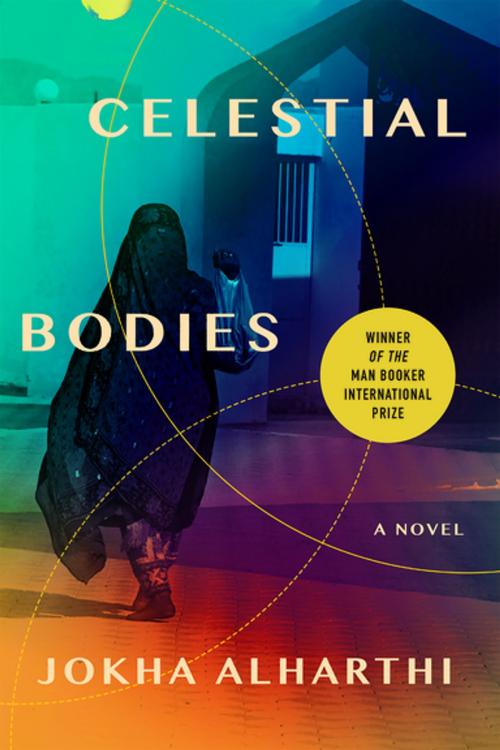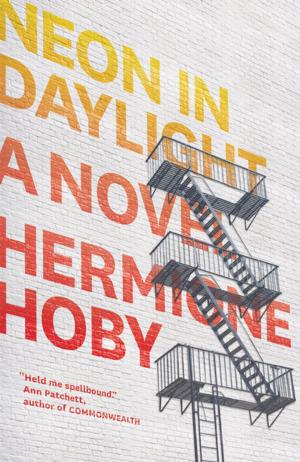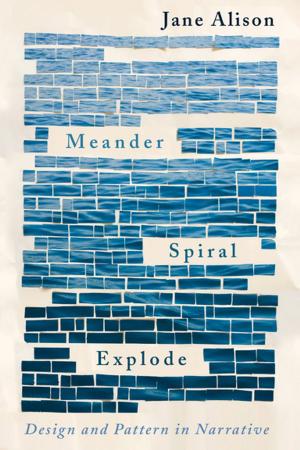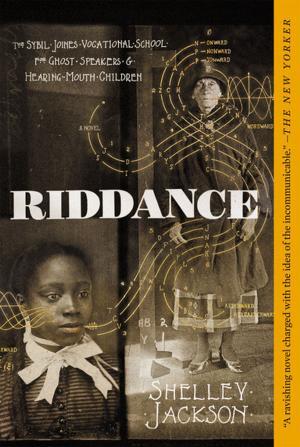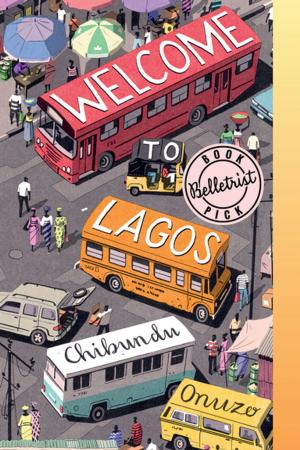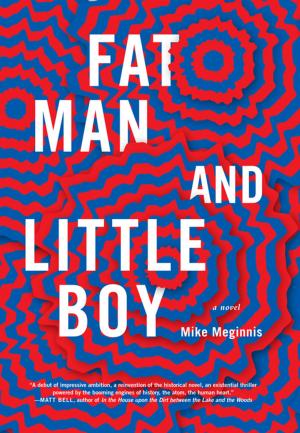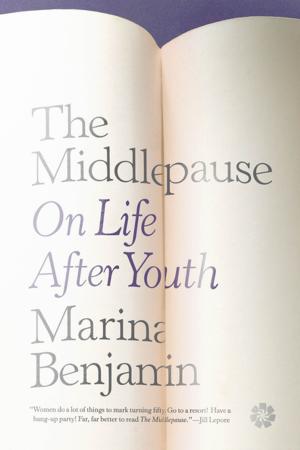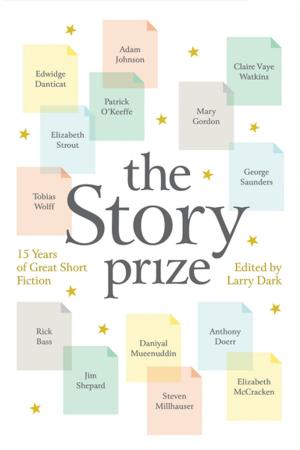| Author: | Jokha Alharthi | ISBN: | 9781948226950 |
| Publisher: | Catapult | Publication: | October 15, 2019 |
| Imprint: | Catapult | Language: | English |
| Author: | Jokha Alharthi |
| ISBN: | 9781948226950 |
| Publisher: | Catapult |
| Publication: | October 15, 2019 |
| Imprint: | Catapult |
| Language: | English |
The first Arabic book to win the Man Booker International Prize, and the first female Omani writer to be translated into English
Previous winners of the Man Booker International Prize include Flights by Olga Tokarczuk, and The Vegetarian by Han Kang
Celestial Bodies invites readers into a world very rarely depicted for English language readers, Oman, both in its modern-day moment and in its fraught historical journey into a 21st century nation located on the most important oil transport waterway in the world.
The novel also offers a non-Western demonstration a feminist perspective and non-Western critique of patriarchy as well as a non-Western exploration of freedom and self-determination
The moving, intergenerational, and interconnected narratives will appeal to readers of literary family sagas, literature in translation, Arabic voices, and more
Catapult editor in chief Jonathan Lee won the American publication rights to Celestial Bodies in an auction
Bookseller Praise for Celestial Bodies
"Jokha Alharthi is a major author. And Celestial Bodies is a monumental achievement." —Spencer Ruchti, Harvard Book Store (Cambridge, MA)
"Through the shimmering, quietly majestic portraits of three Omani sisters and their extended families, Jokha Alharthi manages to capture an entire country in the midst of swift and sweeping transformation. As these sisters grapple with their own desires and the deeply embedded expectations of their society and culture, Alharthi unearths the powerful emotions that thrive and fester in the rifts between generations—the envy, for instance, of the downtrodden old for the free young, or the latter's resentment and shame under the pressure of timeless traditions. Alharthi writes with such grace and fluidity that one might imagine her working not with a pen but a paintbrush, from which broad swaths of starlight and shadow and silk trail in breathtaking, hypnotic patterns. At once expansive and microscopic, dazzling and dark, Celestial Bodies announces an artist of formidable deftness, compassion, and intelligence." —Ben Newgard, Flyleaf Books (Chapel Hill, NC)
"Jokha Alharthi’s Celestial Bodies is a work to behold. Set in Oman—a country that didn’t formally abolish slavery until 1970—this novel spans decades and generations, all against the backdrop of the nation’s cultural and political transformations. In crisp prose, Alharthi (via translator Marilyn Booth) traces the contours of Oman’s changes through the daily goings-on of one upper-class family living in the rural village of al-Awafi. Celestial Bodies’s compassionate grasp of history warrants comparisons to the best works by Kundera and Márquez. But ultimately, this novel’s vision is its own, and its voice that of an essential new literary star." —Joshua Cuevas, Out West Books (Grand Junction, CO)
"An immersion into the generational changes of Omani culture, with a beautifully written narrative that keeps haunting me ever since I completed the book. This is the winner of the Man Booker International Prize 2019, and it sneaks up on you as the characters develop and their secrets are told. Your patience will be rewarded. Highly recommend." —Todd Miller, Arcadia Books (Spring Green, WI)
"A must-read for everyone. The beauty in the different voices as they tell their stories is unsurpassed as the characters describe their perspective." —Kristen Kuehnle, Fine Print Booksellers (Kennebunkport, ME)
"Jokha Alharthi's Man Booker International Prize–winning novel Celestial Bodies, translated by Marilyn Booth, carries heavy political and even historical weight with it, as the first novel by an Omani woman ever to be translated into English. It's a moving, intriguing, inventive entry into the new canon of contemporary Arabic literature in translation. Told by a wide cast of narrators in alternating chapters, the novel sketches a wide landscape of an Omani society in cataclysmic transformation over the course of a scant few generations. Men and women, enslaved and elite, are all swept up—and many swept away—as their country heaves around them, and as three sisters struggle for agency in the complex webs of kin and exploitation that surround them." —Helen Zuckerman, Community Bookstore (Brooklyn, NY)
"Celestial Bodies is a vital new addition to contemporary Arabic literature. With fully formed characters and intricate plotting, this novel tackles universal themes of intergenerational familial conflict, feminism, and the pressures of social upheaval." —Lesley Rains, City of Asylum (Pittsburgh, PA)
"This multigenerational yet intensely personal tale of families in many states of turbulence is a monumental achievement. Alharthi's Celestial Bodies is proof of how important and necessary translated works are in the larger body of literature because they act as vessels of empathy for cultures and people that are different from our own." —Bennard Fajardo, Politics and Prose (Washington, D.C.)
"This book is extraordinary! Gorgeous and epic and fascinating, beautifully written and so readable!" —Mary Cotton, Newtonville Books (Newton, MA)
"Celestial Bodies, Jokha Alharthi's novel, presented in a tender and gripping English translation by Marilyn Booth, deserves the Man Booker International Prize and all other literary awards that will surely come its way! Alharthi's book should be by the bedside of any reader willing to investigate the craft of combining an extraordinary tale with the highly refined art of storytelling. It left me breathless!" —Dorothy Massey, Collected Works (Santa Fe, NM)
"Celestial Bodies is an extraordinary novel. I loved these characters and kept hoping, wondering, and dreaming about them. So much in their society was changing, yet more freedom didn’t guarantee happiness (or complete ability to choose), which is of course always true, both in the novelist’s culture and my own. Some characters are able to break free and love, despite difficult and unfair circumstances, and others stop loving out of self-preservation. It’s just too late. And then there’s that deep mystery of what really happened to Abdullah’s mother. I can’t wait to share this novel with our customers." —Karen Maeda Allman, The Elliott Bay Book Company (Seattle, WA)
"What better way to share the depths of a culture than to allow us to see it through the eyes of persons living in it. Alharthi has done just that with the culture of Oman, sharing the daily lives of its citizens, from poor, slave families to those better off and, indeed, becoming wealthy on the new growth of this nation. Focusing on the lives of three sisters—two of whom choose to marry and one who is hoping to reunite with her true love—we receive an overview that has led to the success of this novel. Winner of the 2019 Man Booker International Prize, it is a prize to be included in the library of anyone interested in other cultures and in women’s issues. My thanks to Marilyn Booth, who provided such an adept translation of this work from the original Arabic, and to Jokha Alharthi for taking the time to prepare this gift for us." —Linda Bond, Auntie's Bookstore (Spokane, WA)
The first Arabic book to win the Man Booker International Prize, and the first female Omani writer to be translated into English
Previous winners of the Man Booker International Prize include Flights by Olga Tokarczuk, and The Vegetarian by Han Kang
Celestial Bodies invites readers into a world very rarely depicted for English language readers, Oman, both in its modern-day moment and in its fraught historical journey into a 21st century nation located on the most important oil transport waterway in the world.
The novel also offers a non-Western demonstration a feminist perspective and non-Western critique of patriarchy as well as a non-Western exploration of freedom and self-determination
The moving, intergenerational, and interconnected narratives will appeal to readers of literary family sagas, literature in translation, Arabic voices, and more
Catapult editor in chief Jonathan Lee won the American publication rights to Celestial Bodies in an auction
Bookseller Praise for Celestial Bodies
"Jokha Alharthi is a major author. And Celestial Bodies is a monumental achievement." —Spencer Ruchti, Harvard Book Store (Cambridge, MA)
"Through the shimmering, quietly majestic portraits of three Omani sisters and their extended families, Jokha Alharthi manages to capture an entire country in the midst of swift and sweeping transformation. As these sisters grapple with their own desires and the deeply embedded expectations of their society and culture, Alharthi unearths the powerful emotions that thrive and fester in the rifts between generations—the envy, for instance, of the downtrodden old for the free young, or the latter's resentment and shame under the pressure of timeless traditions. Alharthi writes with such grace and fluidity that one might imagine her working not with a pen but a paintbrush, from which broad swaths of starlight and shadow and silk trail in breathtaking, hypnotic patterns. At once expansive and microscopic, dazzling and dark, Celestial Bodies announces an artist of formidable deftness, compassion, and intelligence." —Ben Newgard, Flyleaf Books (Chapel Hill, NC)
"Jokha Alharthi’s Celestial Bodies is a work to behold. Set in Oman—a country that didn’t formally abolish slavery until 1970—this novel spans decades and generations, all against the backdrop of the nation’s cultural and political transformations. In crisp prose, Alharthi (via translator Marilyn Booth) traces the contours of Oman’s changes through the daily goings-on of one upper-class family living in the rural village of al-Awafi. Celestial Bodies’s compassionate grasp of history warrants comparisons to the best works by Kundera and Márquez. But ultimately, this novel’s vision is its own, and its voice that of an essential new literary star." —Joshua Cuevas, Out West Books (Grand Junction, CO)
"An immersion into the generational changes of Omani culture, with a beautifully written narrative that keeps haunting me ever since I completed the book. This is the winner of the Man Booker International Prize 2019, and it sneaks up on you as the characters develop and their secrets are told. Your patience will be rewarded. Highly recommend." —Todd Miller, Arcadia Books (Spring Green, WI)
"A must-read for everyone. The beauty in the different voices as they tell their stories is unsurpassed as the characters describe their perspective." —Kristen Kuehnle, Fine Print Booksellers (Kennebunkport, ME)
"Jokha Alharthi's Man Booker International Prize–winning novel Celestial Bodies, translated by Marilyn Booth, carries heavy political and even historical weight with it, as the first novel by an Omani woman ever to be translated into English. It's a moving, intriguing, inventive entry into the new canon of contemporary Arabic literature in translation. Told by a wide cast of narrators in alternating chapters, the novel sketches a wide landscape of an Omani society in cataclysmic transformation over the course of a scant few generations. Men and women, enslaved and elite, are all swept up—and many swept away—as their country heaves around them, and as three sisters struggle for agency in the complex webs of kin and exploitation that surround them." —Helen Zuckerman, Community Bookstore (Brooklyn, NY)
"Celestial Bodies is a vital new addition to contemporary Arabic literature. With fully formed characters and intricate plotting, this novel tackles universal themes of intergenerational familial conflict, feminism, and the pressures of social upheaval." —Lesley Rains, City of Asylum (Pittsburgh, PA)
"This multigenerational yet intensely personal tale of families in many states of turbulence is a monumental achievement. Alharthi's Celestial Bodies is proof of how important and necessary translated works are in the larger body of literature because they act as vessels of empathy for cultures and people that are different from our own." —Bennard Fajardo, Politics and Prose (Washington, D.C.)
"This book is extraordinary! Gorgeous and epic and fascinating, beautifully written and so readable!" —Mary Cotton, Newtonville Books (Newton, MA)
"Celestial Bodies, Jokha Alharthi's novel, presented in a tender and gripping English translation by Marilyn Booth, deserves the Man Booker International Prize and all other literary awards that will surely come its way! Alharthi's book should be by the bedside of any reader willing to investigate the craft of combining an extraordinary tale with the highly refined art of storytelling. It left me breathless!" —Dorothy Massey, Collected Works (Santa Fe, NM)
"Celestial Bodies is an extraordinary novel. I loved these characters and kept hoping, wondering, and dreaming about them. So much in their society was changing, yet more freedom didn’t guarantee happiness (or complete ability to choose), which is of course always true, both in the novelist’s culture and my own. Some characters are able to break free and love, despite difficult and unfair circumstances, and others stop loving out of self-preservation. It’s just too late. And then there’s that deep mystery of what really happened to Abdullah’s mother. I can’t wait to share this novel with our customers." —Karen Maeda Allman, The Elliott Bay Book Company (Seattle, WA)
"What better way to share the depths of a culture than to allow us to see it through the eyes of persons living in it. Alharthi has done just that with the culture of Oman, sharing the daily lives of its citizens, from poor, slave families to those better off and, indeed, becoming wealthy on the new growth of this nation. Focusing on the lives of three sisters—two of whom choose to marry and one who is hoping to reunite with her true love—we receive an overview that has led to the success of this novel. Winner of the 2019 Man Booker International Prize, it is a prize to be included in the library of anyone interested in other cultures and in women’s issues. My thanks to Marilyn Booth, who provided such an adept translation of this work from the original Arabic, and to Jokha Alharthi for taking the time to prepare this gift for us." —Linda Bond, Auntie's Bookstore (Spokane, WA)
